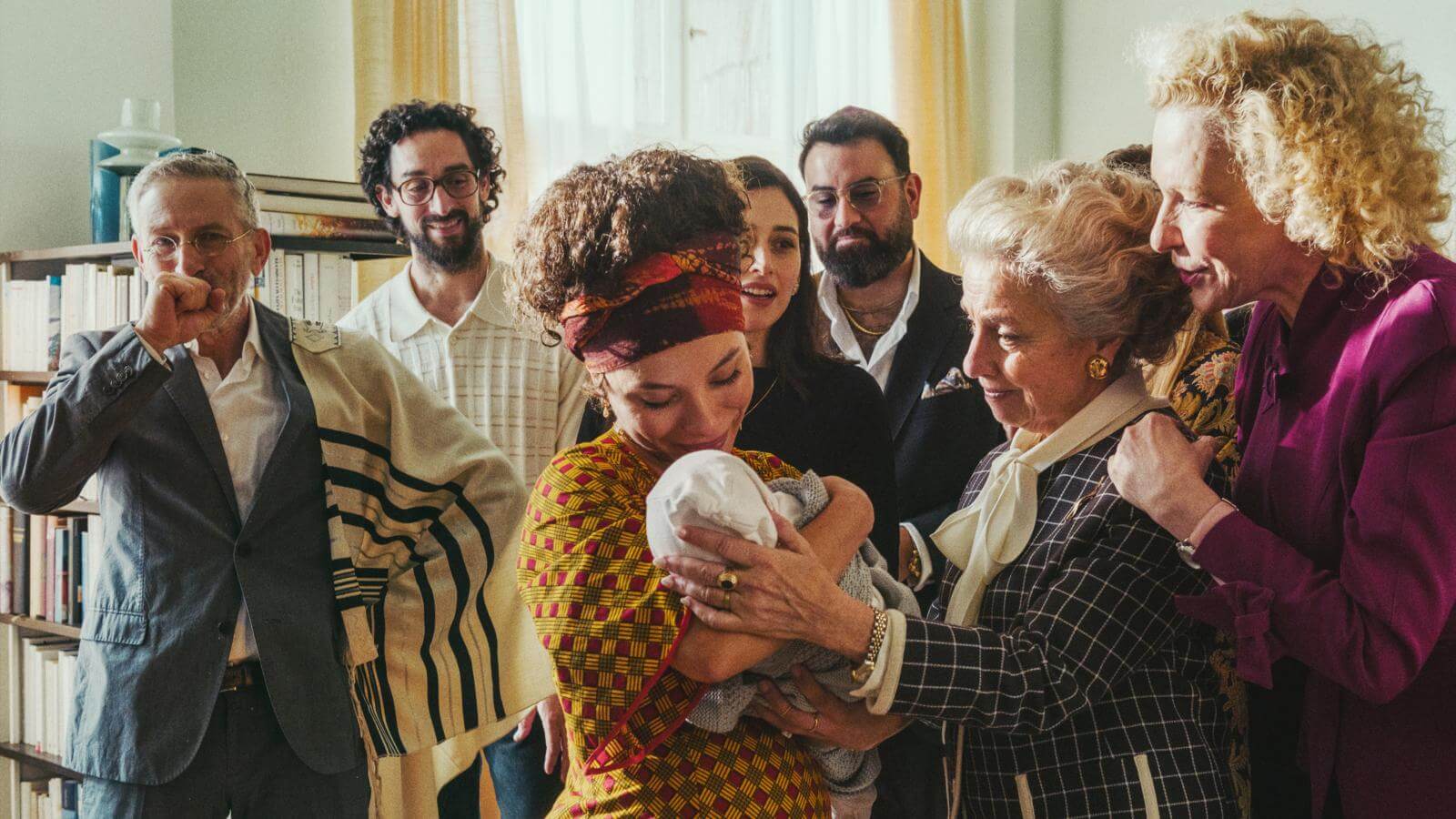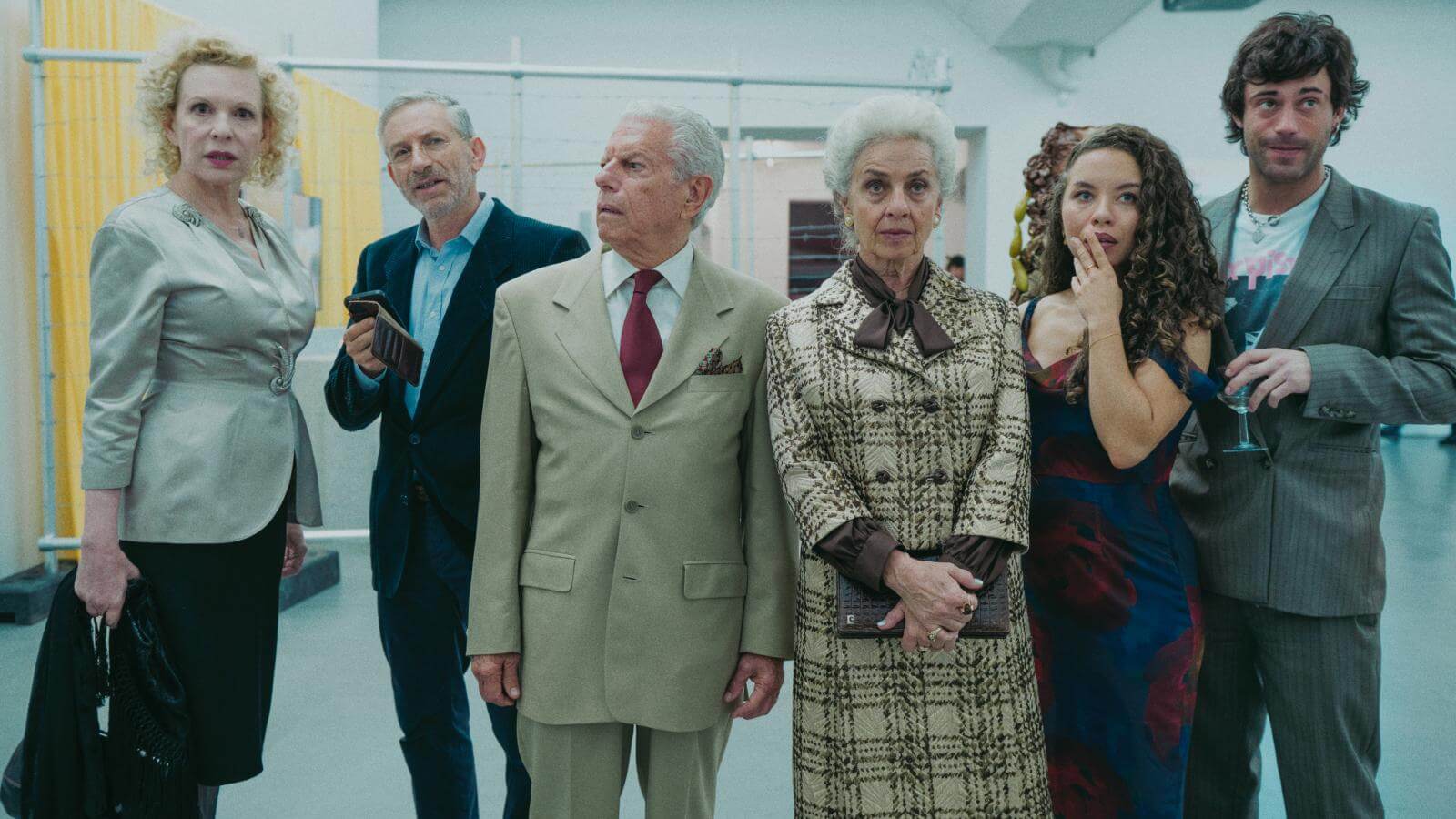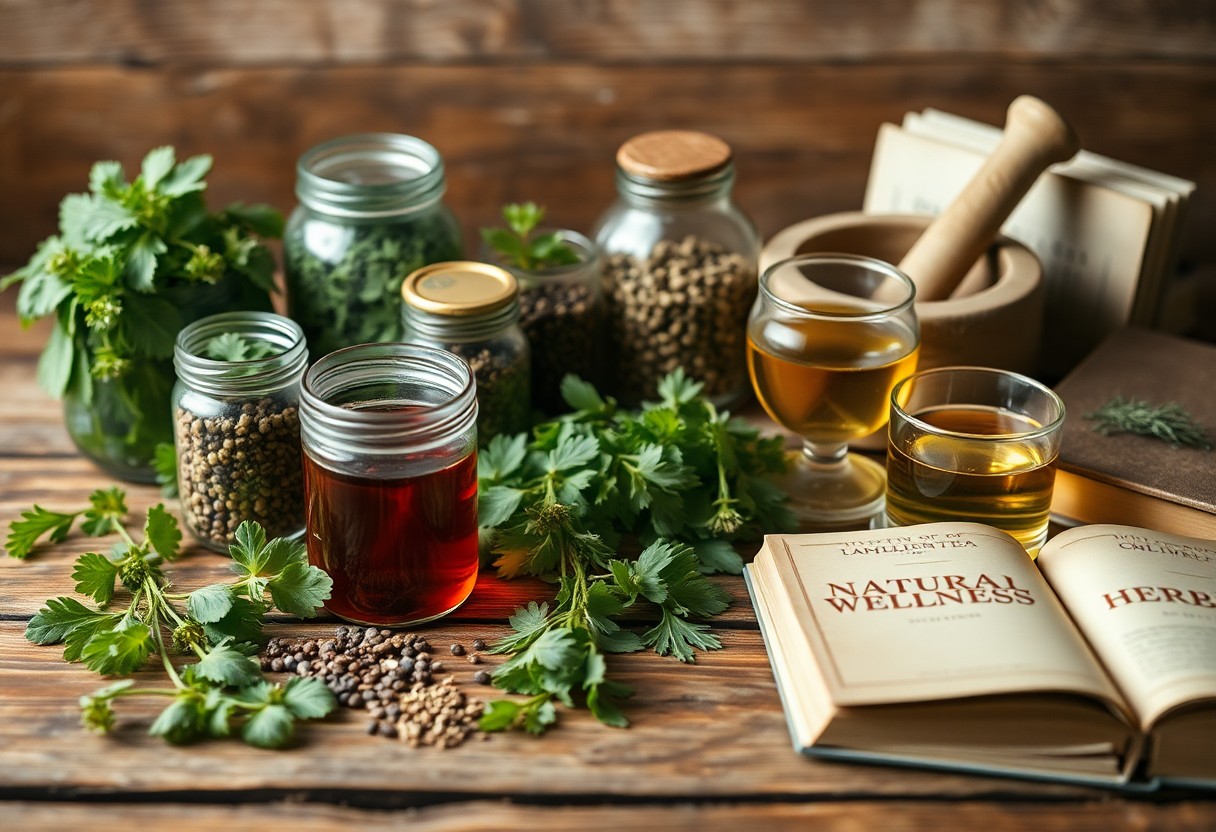The cast of The Zweiflers have vibrant, multi-lingual family meals.
Photo by ZDF Studios
What if, instead of hanging out at Satriale’s Pork Store, Tony Soprano and his crew were regulars at a deli that served cholent?
The question no one asked has an answer in the German series The Zweiflers, playing as part of the New York Jewish Film Festival this month, about a Frankfurt family who opened a traditional Jewish deli — after leaving behind the business of red-light district brothels.
Created by the husband-and-wife team of David and Sarah Hadda with Juri Sternburg, the show, which won best series at the Cannes International Series festival, takes its cues from American shows like The Sopranos and Mad Men and in its culinary coolness a bit of The Bear. Critics have said it doesn’t resemble a German television show either in style or content — that was by design.
“All of the shows so far, no matter fiction or nonfiction, drama, comedy, whatever, that dealt with Jewish topics,” said David Hadda, a lawyer by training who had his first hit with the late-night talk show Friday Night Jews. “I never felt represented, because the characters were not real, the language they used was not real.”
Hadda, who was born in 1984, grew up in a Frankfurt home to many Holocaust survivors from Eastern Europe, like his grandparents, who settled in Germany after leaving a displaced persons camp. Yiddish was their lingua franca and, to earn living, many of the Jews got involved in the black market (there was no real white market in those postwar years) and opened bars and clubs servicing American soldiers. What went on at those establishments wasn’t always legal, but Hadda thinks it’s an empowering story of people getting back on their feet after the unthinkable, a good counterpoint to the traditional narrative in Germany, where Jews are often made out to be victims.
The show is set in 2016, when the Polish-born, survivor patriarch of the Zweifler family, Symcha (a sturdy, at times scary Mike Burstyn, mostly speaking Yiddish), must confront his past when his former associate returns from prison, planning to blackmail him at a moment when he’s looking to sell the successful deli, which regularly draws “15 meter lines out the door.”
But crime is but one subplot of the show and the three generations it follows.
Symcha’s oldest grandson, Samuel (Aaron Altaras), is a tatted-up band manager who gets a British-Caribbean chef pregnant after a first date featuring his family’s food and the music of Nick Cave (the question of her conversion, and their son’s bris, form a major narrative arc). His brother Leon (Altaras’ real life brother Leo), is an artist who painted subversive, fleishig-forward nudes of his family for display in a local gallery and threatens to “be naked on the walls of the Louvre with a salami in my ass.” Adding a fifth language — after Yiddish, Russian, English and German — to the mix is their sister, Dana, who made aliyah and can be heard speaking Hebrew over Zoom from Israel.

“It complexifies the portrayal of Jews in Germany in a very authentic way,” said Guli Dolev-Hashiloni, a Yiddishist living in Germany and researching postwar Jewish Frankfurt, particularly the time Symcha would have entered into business in the 1950s.
“You have this sort of German depiction of German Jews, which wants to see the Jews living today in Germany as the heirs, at least culturally, of Freud and Einstein and all those well-versed German speaking Jews that lived in German-speaking cities for hundreds of years,” Dolev-Hashaloni added. “But actually, the series just shows the reality, which is the positioning of German Jews in transnational crossroads.”
Most Jews that live in modern Frankfurt didn’t originate in Germany, but they left a large stamp on the culture, particularly in Frankfurt.
Growing up, Hadda played with a Frankfurt Jewish soccer club called Makkabi and was involved in a Zionist Youth Organization. His father-in-law, Fiszel Ajnwojner, works at a synagogue in Frankfurt (he advised on and even acted in the show) and the crew filmed scenes at the Frankfurt’s historic Westend Synagogue where Hadda had his bar mitzvah — even flying out its Israel-based cantor, who typically makes appearances at high holiday services, for filming.
Striving for authenticity, Hadda had to go beyond Germany for some of the cast. He made a flyer for Yiddish-speaking performers and sent it to talent agencies and theaters in Israel and the U.S. and booked Burstyn, the scion of a Yiddish acting dynasty, for Symcha and Eleanor Reissa, the “Queen of Yiddish Cabaret,” to play his wife, Lilka. Driving the show’s creators was a determination to overcome the usual deference German media pays to Jews, particularly when non-Jews are the ones creating it.
“When something like this is being made, then mostly fear is one of the biggest advisors,” said Hadda. “And I think fear is always the worst advisor, no matter what you do.”
And so the show portrays German Jews with all their complexity, faults and ambivalence toward the nation that once tried to exterminate them. Samuel and his friends dine on chili shrimp in a ritzy restaurant after toasting “L’chaim.” His father, Jackie (Mark Ivanir) who came, like many Jews in modern Germany, from the Soviet Union, scolds a museum curator for displaying art likening the murder of chickens to the Holocaust. Lilka (a magnificent, vulnerable Reissa) fears her maid is poisoning her pills, comparing her to Adolf Eichmann.
Symcha’s criminal past — which recalls the resume real-life people like Hersch Beker, who owned a brothel and fled to Israel to escape prosecution (Hadda says the character’s not based on any one person) is a major arc. In the past, in books like Maxim Biller’s Six Suitcases, Jewish involvement in the red-district was relegated to a subplot.
Hadda had a credo in the writer’s room: “Don’t explain,” letting viewers pick up on references to holidays or Jewish foods through context. But the most buzzed-about scene goes beyond the fraught history of Jews in the country.
Samuel’s girlfriend Saba (Saffron Coomber), who is from London and has a father from the Caribbean, gets in a cab with a driver who proceeds to minimize the Holocaust and rail against Jews with far-right talking points. When she doesn’t respond, he assumes she can’t understand him, and pivots to a different sort of racism, asking, in English, where she comes from. (Saba and Samuel first bond over their shared “diaspora shit” and even play a flirty game of oppression olympics.)

This explicit connection between Jews and other, newer minority migrant groups in Germany — which Dolev-Hashiloni says are traditionally treated as distinct groups — is quite new for mainstream entertainment.
“It’s the first time Jewish life in Germany is portrayed in this manner, in such an important place, and I think that’s why it attracted some interesting reactions,” said Dolev-Hashiloni.
But how was the catering?
Hadda enlisted Berlin-based Israeli chef Shani Leiderman to make the kugels and brisket we see the family and their customers noshing throughout the series. He shot the family’s deli at an apple wine restaurant — a classical Frankfurt watering hole— and while no such Jewish eatery exists in Frankfurt now, the location captures something of the city’s slowly fading Jewish past in the Bahnhofsviertel district, where many Jews are now more likely to build skyscrapers instead of serve up pastrami or stripteases.
But while skyscrapers once dominated a possible credits sequence that showcased the city, Hadda had a change of heart, instead letting the camera linger in extreme closeup on the meats and barleys that make up the traditional Ashkenazi diet. The effect is gorgeous, but also a touch repulsive.
“It’s tradition, it’s a beautiful thing, but it can be too much. And the same goes with love,” said Hadda. “The show is about love, but it’s also about what happens when there’s too much love and then it becomes unhealthy.”
The TV series The Zweiflers is playing virtually from Jan. 10 at the Miami Jewish Film Festival and in person Jan. 26 at the New York Jewish Film Festival with a discussion with David Hadda and Eleanor Reissa.

I hope you appreciated this article. Before you go, I’d like to ask you to please support the Forward’s award-winning, nonprofit journalism so that we can be prepared for whatever news 2025 brings.
At a time when other newsrooms are closing or cutting back, the Forward has removed its paywall and invested additional resources to report on the ground from Israel and around the U.S. on the impact of the war, rising antisemitism and polarized discourse.
Readers like you make it all possible. Support our work by becoming a Forward Member and connect with our journalism and your community.
— Rachel Fishman Feddersen, Publisher and CEO




















